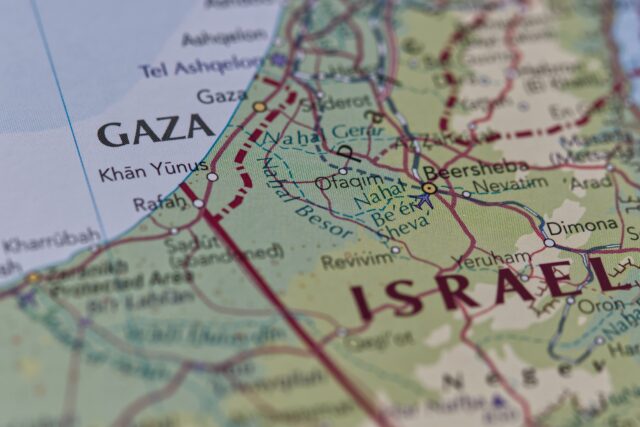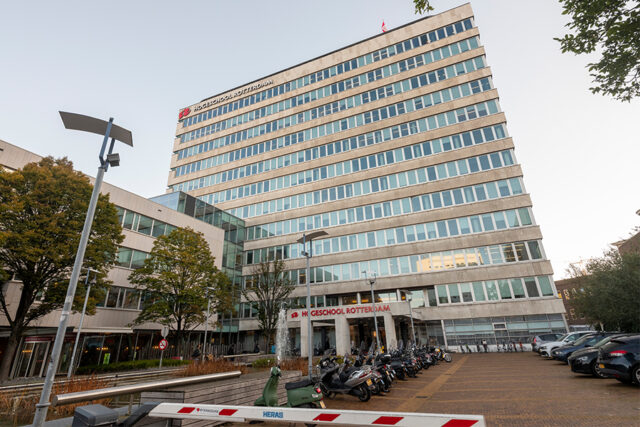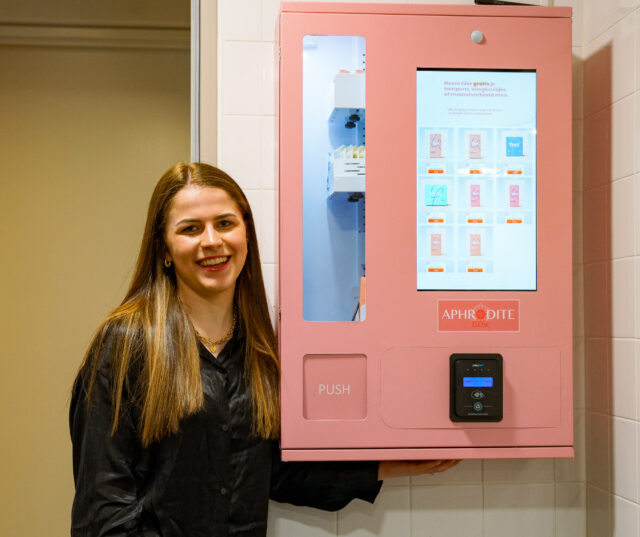RBS 2.0: Shorter blocks, smaller classes, more time at school
Gepubliceerd: 9 June 2015 • Leestijd: 3 minuten en 58 seconden • English Dit artikel is meer dan een jaar oud.In three years, the Kralingse Zoom location will look differently than it does today. At first sight, it will be a renovated building consisting of a portion of the current location and a new building ‘at the back’ – where the RBS is currently located.

This is the exterior of a metamorphosis that also expressly comprises an interior – that is, the educational aspect. At the Kralingse Zoom, the education institutes took a direction that should result in a higher study success rate and increased student satisfaction. It should result in RBS 2.0 – that is, a Rotterdam Business School which not only houses the current RBS institute, but also all economic study programmes, including the business administration programmes that are not yet offered at the Kralingse Zoom.
Shorter blocks
In the years ahead, study programmes will fundamentally change their ways of teaching. Classes and project groups will become smaller, blocks will be shorter (in some cases, they will go from ten to five weeks), and within these periods, there will be orderly, thematic coherence. In addition, students will increasingly receive assignments from the business community. These are some of the elements of the new educational concept that has been applied in the first year of business economics (BE) for eighteen months now – and successfully so.
The first-year success rate increased from 12 to 32 percent after one year. And student satisfaction also increased, as is evident from the National Student Survey, among other things.’
BE is a (successful) pilot, but that does not mean that other study programmes should do the same. “It’s not a story that’s set in stone, but it indicates a direction,” says Margriet Langenberg – who coordinates the RBS 2.0 project at the Kralingse Zoom – with regard to the way of teaching. “The study programmes are central and they can do whatever they want, as long as it fits within the overall vision.”
Towards 60 units of credit in the first-year stage (‘propedeuse’)
For commercial economy (CE), for example, an increase in the number of the units of credit that students must earn in the first-year stage (‘propedeuse’) is under consideration. This number is currently set at 48, but CE is considering raising it to 60. Fred Feuerstake, Dean of the commercial management school: “As the study programme is becoming more profession-oriented, we expect students to be more motivated and to be full-time students, which means that they should be able to earn those 60 units. In addition, we are copying the BE conception of half study periods.’
As of September, CE and Small Business will start working with so-called communities, disciplines such as the existing sports marketing & management programmes. Feuerstake: “These communities should strengthen their relationship with the business community, and the aim is to make the entire curriculum profession-oriented. As a broad CE study programme, we currently collaborate with a lot of companies for work placements and graduation projects, but we want a stronger focus – which means reducing the scope and increasing the emphasis on the specific themes of the communities.”
Communities
The next three new communities will be launched in the coming academic year: global marketing & sales, creative marketing & sales, and public marketing & management. “Global marketing focuses on the international aspect as well as the activities in the broader port area. Creative marketing concentrates on the creative industry in the broadest sense, including web designers. Public marketing revolves around health care, welfare, and the government,” says Feuerstake, who explains that meanwhile, contacts are being established with companies and municipalities.
The Dean calls for a greater company influence on education. Feuerstake: “So that they can really become partners and we will carry joint responsibility for educating students. In this case, we will – of course – have to comply with the requirements set by the NVAO (Dutch-Flemish Accreditation Organisation). And just to be clear: where, for example, health care is concerned, it doesn’t mean students will enter a health care study programme of sorts; we train them to be commercial economists for the benefit of a particular sector.”
“Thematic approach makes it more fun”
These are positive developments, according to Margriet Langenberg. “Such a profession-oriented, thematic approach makes your studies more fun; it makes students more enthusiastic. And that doesn’t even necessarily mean that you will end up in the sector in question.”
IBMS (International Business & Management) is also working on a new form of education and will take BE and CE’s approaches into consideration. Langenberg: “The study programmes choose their own direction, but we encourage and facilitate that they learn from each other by bringing people together.”
Flexible spaces
The new forms of teaching also require different lecture rooms. Large lecture halls are still needed, but additionally, there is a growing demand for a lot of small rooms and places where people can meet informally. The Rotterdam University of Applied Sciences notes the architect who will be recruited for new buildings and renovation should think along about this.
Langenberg: “In any case, more flexible spaces should be realized, because you might be with a large group the one time, and a much smaller one the next. Another reason why more of these types of spaces should be realized is that it’s not yet clear how all study programmes will choose to work with this new type of education.”
Demolition of the RBS
This week, an architect will be chosen from the four architects who have been preselected. This is followed by the final design, and the construction work will start early next year. By then, both the wing of the Rotterdam Business School and the Portocabins behind it will already have to have been demolished and removed. Study programmes will temporarily move to the WTC, where the Rotterdam University of Applied Sciences is currently already renting rooms.
At the Kralingse Zoom, the new buildings as well as the new forms of education are already being discussed by fifteen different working groups. Langenberg states that in spite of this, suggestions are still welcomed.
Jos van Nierop
Illustration: Maus Bullhorst









Verhuist de RBS niet naar een ander gebouw binnen de kralingse zoom? Dat is ons verteld.